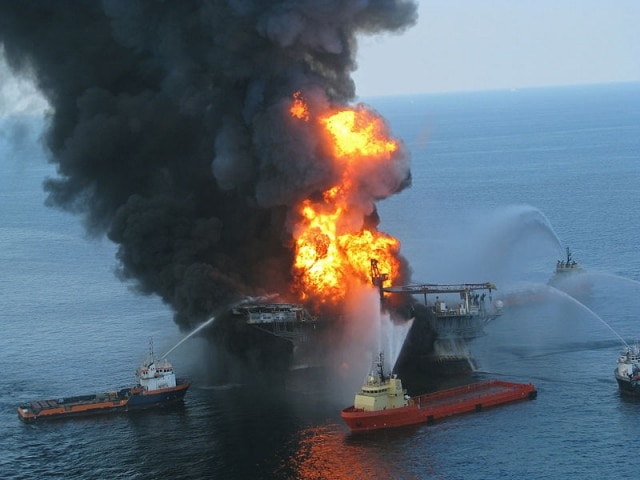A federal judge in New Orleans minced no words in handing down a ruling this week that found BP‘s “willful misconduct” and “gross negligence” caused the worst offshore oil spill in U.S. history.
The ruling is the result of a jury-less trial to determine who was at fault for the 2010 Deepwater Horizon disaster and oil spill. The trial was held by District Judge Carl Barbier in New Orleans.
A blowout at BP‘s ultra-deepwater Macondo well in the Gulf of Mexico on April 20, 2010 caused an explosion that took the lives of 11 workers on the Deepwater Horizon rig, which then sank to the bottom of the Gulf, some 5,000 feet below, leaving the well to spew oil for 87 days until it was capped.
Barbier rejected BP‘s assertion that Transocean, which leased the Deepwater Horizon rig to BP, and Halliburton, which was contracted by BP to do cement work on the well, deserved equal shares of blame. “BP‘s conduct was reckless,” Barbier wrote in his 153-page ruling. “Transocean’s conduct was negligent. Halliburton’s conduct was negligent.”
The judge assigned 67 percent of the fault to BP, 30 percent to Transocean, and 3 percent to Halliburton. According to Bloomberg, this makes BP liable for as much as $18 billion in fines. Having been found merely negligent, Transocean and Halliburton aren’t facing such hefty punitive damages.
BP, of course, plans to immediately appeal.
Barbier must now rule on how much oil was spilled in order to determine the fines to be levied against BP. The U.S. government claims nearly 5 million barrels of oil was spilled, while BP says it was 2.45 million.
The judge will also consider several other issues in assigning final damages, such as BP‘s history of prior violations, fines paid previously in similar cases, and steps the oil company took to mitigate the impacts of the spill. The process is expected to take years.
Image Credit: Deepwater Horizon offshore drilling unit on fire 2010 by U.S. Coast Guard via Wikimedia Commons
Subscribe to our newsletter
Stay up to date with DeSmog news and alerts






